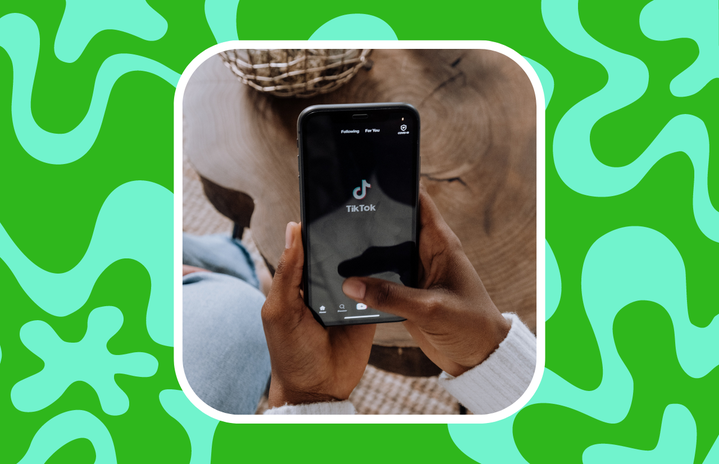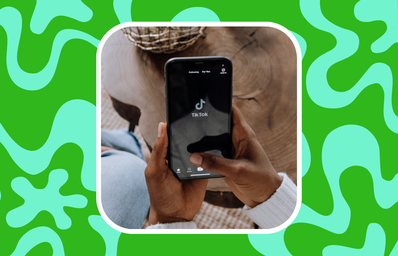Social media has many flaws and over-saturation is just one of them.
I’ve never been a fan of the gym, but I certainly work out my thumbs scrolling through social media feeds.
Sometimes it starts to feel like I’m stuck in a time loop, like my body will not physically respond to my thoughts of putting the phone down and getting out of bed. Sometimes it only makes me want to sink deeper into the covers, disappear and stop existing in the chaos of this world.
Now that we are three years into the decade, it has been widely discussed that social media is problematic. We know it’s become a problem, but we are past the point of stopping it. Now, the discussion has shifted instead to figuring out how to deal with it in healthier ways.
The internet started as an innovative and life-changing concept, it started out simple and fascinating, but it has become a medium so widespread that the world is now available at our fingertips. We, as a society, are aware of this, and of the infinite benefits and dangers that the world wide web has made possible. In the past decade, the focus of the issue has been social media.
Social media is a very sharp, double-edged sword. There are moments where it is beautiful, like when Twitter or TikTok help someone find the friend they made on a cruise many years ago, or when someone can raise money across platforms to pay for high medical bills. On the other side of the coin, there are just as many (if not more) moments when it is ugly, when someone gets bullied off a platform or when people use it to spread misinformation or hate.
According to a Pew Research Center survey, about two-thirds of Americans believe social media has a mostly negative effect on the country today. One negative effect it has is that social media often becomes an “echo chamber.” This effect is defined by the University of Texas Stan Richards School of Advertising and Public Relations as “when one experiences a biased, tailored media experience that eliminates opposing viewpoints and differing voices.” The echo is of our own beliefs, which are taken by social media algorithms and spit right back at us. This is also why we tend to fall into a confirmation bias when we spend too much time online, like when we believe everyone identifies as queer or has liberal political views because that is the “side” of TikTok the algorithm shows us.
It is even more worrisome to think about the actual effect these biases have in society and the way we process information. Aspen Institute’s Commission on Information Disorder led an in-depth, six-month-long investigation, and they started their final report with this: “Bad information has become as prevalent, persuasive, and persistent as good information, creating a chain reaction of harm. It makes any health crisis more deadly. It slows down response time on climate change. It undermines democracy.” There is so much information being put out there at the same that it becomes impossible to discern the truth from the lie. While it is interesting to see news and media turning their campaigns and reports into TikTok videos and Instagram infographics, we never know how reliable the content we are consuming is.
In a similar way, another big factor that makes social media a villain is that nothing within those walls of content is real. The way Jemima Kelly puts it in her article, “If it were, then there would be moral, social and therefore emotional costs associated with behaving badly.” Kelly cites the Section 230 of the U.S. Communications Decency Act of 1996 which gives certain legal immunity to computer and online services from any third-party content that its users might publish. On the flip side, this law is also what makes free speech so available on the internet. Congress currently has two pending court cases that relate to the interpretation of this law, as ACLU member Jennifer Stisa Granick wrote in her article. The result of those cases, Granick mentioned, can change the way the internet works forever, since it may result in heavier censorship in social media that will lean towards over-censoring in fear of breaking the law. This limit of free speech would go against the main thing that makes the internet and social media such a fascinating place and it may change the way we use certain platforms.
Unfortunately, the internet has long freed itself from our control, and we’ve reached a point where it is almost impossible to do anything about our social media obsession and our cramping thumbs. However, what we can do is learn to manage ourselves in this paradigm.
Social media is about patterns, scrolling and algorithms, SEO and data collection. We become so focused and immersed in it that we often forget how spontaneous our lives can be. There are many ways we can combat the saturation we have to face every day, but the best one is to practice some mindfulness and awareness. You don’t need to do yoga or meditate, but sitting down every day without your phone, headphones, computer, smartwatch, TV or any electronic device, and taking a very big and very deep breath, helps. Social media makes us overexposed and vulnerable, so occasionally, we must try and take a step back into ourselves and not be a million people around the world at the same time.


